MercoPress. South Atlantic News Agency
Latin America
-
Wednesday, December 7th 2011 - 22:11 UTC
China and Bolivia agree on closer military cooperation and high level exchanges
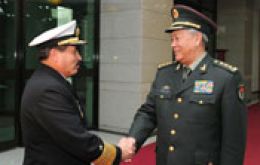
China and Bolivia have agreed to strengthen military relations which are a continuation of the “excellent links in other fields”, according to an official press release in Beijing
-
Wednesday, December 7th 2011 - 22:03 UTC
Wing of Peru’s terrorist group Shinning Path admits defeat and wants peace talks
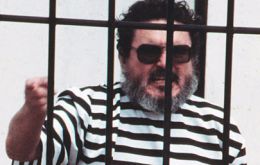
”Comrade Artemio” head of one of the two remnant groups of the Peruvian armed terrorist Shinning Path movement admitted defeat and called on the government in Lima to begin a dialogue process to reach a peace accord.
-
Wednesday, December 7th 2011 - 17:51 UTC
EU cuts Argentina, Brazil, Chile and Uruguay from development aid

The European Commission decided to cut aid from its 2014-2020 budget to 19 emerging economies including Brazil, Argentina, Uruguay and seven other Latin American countries, the EU development commissioner Andris Piebalgs said on Wednesday.
-
Wednesday, December 7th 2011 - 08:30 UTC
Santander sells Colombia’s affiliate to a Chilean bank

Banco Santander SA said late Tuesday it has agreed to sell all of its units in Colombia, including Banco Santander Colombia, to Chilean CorpBanca as part of its efforts to collect fund to comply with European regulators.
-
Wednesday, December 7th 2011 - 06:00 UTC
Colombia takes to the streets to demand “Freedom and NO more FARC”
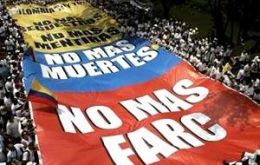
Thousands of Colombians on Tuesday joined demonstrations demanding that the country's oldest guerrilla group, the FARC, free all its hostages, ten days after rebels murdered four men who had been held for more than a decade.The FARC responded with a promise, posted on its webpage, to release hostages.
-
Tuesday, December 6th 2011 - 23:50 UTC
“It’s a good joke…I’m hoping for a tie for Christmas” from Benetton
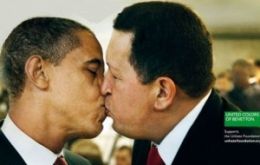
Venezuelan President Hugo Chávez laughed off a Benetton advertisement that showed him kissing his ideological adversary and US counterpart Barack Obama, admitting that it was a “good joke.”
-
Tuesday, December 6th 2011 - 19:04 UTC
Chilean education system tends to “exclusion and discrimination” says UNESCO
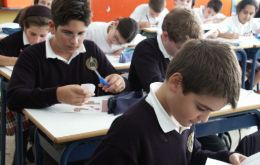
The Chilean education system promotes inequality and exclusion according to a report from UNESCO regional office released in Santiago, based on comparing education legislation from Argentina, Uruguay and Finland.
-
Tuesday, December 6th 2011 - 18:51 UTC
Forum to promote trade and investment relations Latam-India
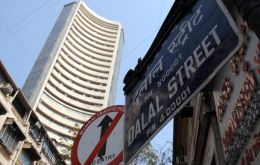
The potential of India for Latinamerican exports and investment opportunities was underscored during the presentation of a report “India and Latin America and the Caribbean, opportunities and challenges in trade and investment relations” sponsored by the UN Economic Commission for Latin America and the Caribbean, ECLAC.
-
Tuesday, December 6th 2011 - 18:21 UTC
Repsol-YPF extracts almost 10% of Ecuador’s oil production
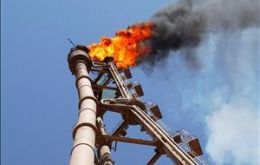
Repsol-YPF has raised its output in Ecuador to 45.000 bpd thanks to two new wells in the Amazon region, although the Spanish oil major still is forecasting a steady decline in production in the coming years, company executives said.
-
Tuesday, December 6th 2011 - 04:22 UTC
Latam forecasted to expand 4.4% this year and 3.5% in 2012
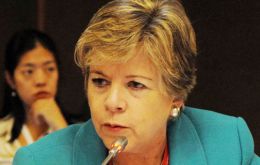
The Executive Secretary from the UN Economic Commission for Latinamerica and the Caribbean, ECLAC, Alicia Barcena said that the European crisis is beginning to be felt but nevertheless growth in the region will continue this year and in the coming twelve months at levels above 3.5%.
